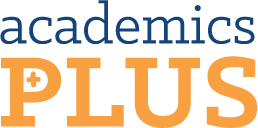A recent study out of the University of Luxembourg showed that working memory in children is strongly linked to reading and academic achievement. Dr. Pascale Engel de Abreu, the study’s project leader, found “that a child’s working memory skills, their ability to hold and work with information in mind, predicted success in all aspects of learning, regardless of IQ,” (Engel de Abreu et al., 2014). Their study also found that “most children identified by their teachers as “poor readers” struggled with their working memory,” (Engel de Abreu et al., 2014). Working memory skills are essential to success in all aspects of the classroom such as remembering what the teacher said in order to take notes or follow multistep instructions, solve math problems, or keep your place in a task. However, Dr. Engel de Abreu and her colleagues (2014) discovered that “poor working memory is rarely identified by teachers”. More often, these children are labeled as having attention deficit issues when, in reality, they are experiencing what can be called “working memory overload”. Due to low working memory capacity, children lose the needed information to perform a task because they are unable to hold all of it in their brain. This causes them to shift their attention away from a task and look like they are “zoning out” or getting distracted. At Academics Plus, a huge focus of our curriculum is memory work. Our memory work consists of a variety of activities, all designed to increase a child’s memory capacity. By boosting a child’s storage capacity, they are gaining the mental tools necessary to learn and function in a classroom effectively. Children return to their classroom environment better able to perform tasks such as following multi-step directions, writing, and applied math problems, all tasks that require children to hold information in their mind and perform some kind of action with it. Children are also able to effectively make application of what they have learned and “learn-forget syndrome” becomes a thing of the past. When children have a high working memory capacity, they become capable, confident learners!
Pascale M. J. Engel de Abreu, Neander Abreu, Carolina C. Nikaedo, Marina L. Puglisi, Carlos J. Tourinho, Mônica C. Miranda, Debora M. Befi-Lopes, Orlando F. A. Bueno, Romain Martin. Executive functioning and reading achievement in school: a study of Brazilian children assessed by their teachers as “poor readers”. Frontiers in Psychology, 2014; 5 DOI: 10.3389/fpsyg.2014.00550
